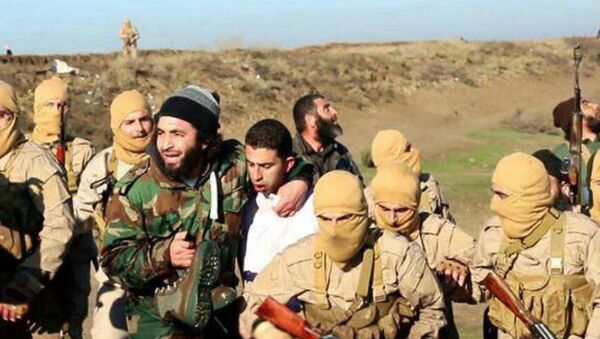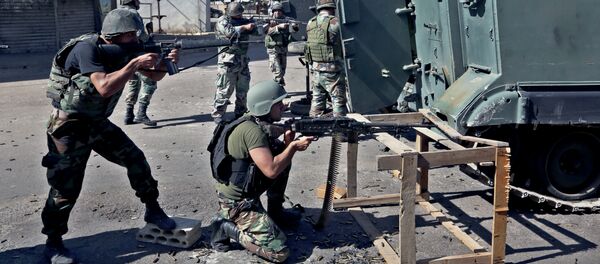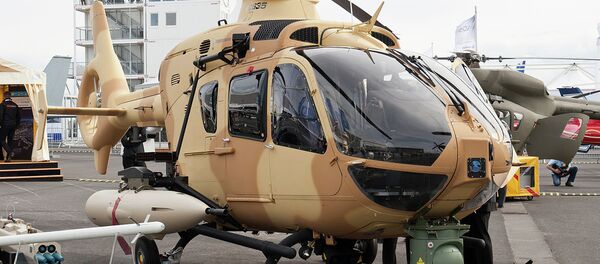"During an operation aimed at destroying Islamic State hideaways in the Syrian province of Raqqa, one of the Royal Jordanian Air Force aircraft was shot down, with its pilot taken hostage," the Jordanian Armed Forces said in a statement published on its website.
“Jordan holds the [Islamic State] group and its supporters responsible for the safety of the pilot and his life,” a military statement, read on Jordanian state television, said.
The confirmation follows the release of photographs by IS propagandists from the 'Raqqa Media Center' on jihadist social media sites showing IS fighters which showed the captured pilot and his identification card. The city of Raqqa is believed to be IS's de facto capital, and most of the surrounding province of Raqqa is said to be under the control of the group, The Telegraph explained.
The pilot has been identified as Muaz Youssef al-Kaseasbeh. His identity was verified by Kaseasbeh's relatives to Jordanian media.
The jihadists claim to have shot the plane down using a heat-seeking missile. The UK-based Syrian Observatory for Human Rights noted that it had received reports that a pilot had been taken prisoner after his plane was "[shot] down with an anti-aircraft missile near the city of Raqqa."
BBC defense correspondent Jonathan Marcus notes that "IS has been assumed to have a limited air defense capability," based in large part on "shoulder-fired missiles that are rife in the region." Marcus further explains that the group has recently " overrun a number of Syrian air defense bases," but noted that "it is not clear if IS has personnel capable of operating any of these more sophisticated Soviet or Russian-supplied systems."
Rami Abdel Rahman, director of the Syrian Observatory for Human Rights, believes that the jihadi group may have captured the missile from rebels fighting against the government of Syrian President Bashar al-Assad. Rahman told Agence France-Presse that the group now "has a large number of anti-aircraft weapons taken from the rebels."
Jordan is one of several Middle Eastern countries, including Saudi Arabia, Jordan and the United Arab Emirates, to have joined the US-led coalition in carrying out airstrikes against IS after the group spread its influence across large swathes of Iraq and Syria.
The US's Arab allies have generally avoided providing details about their role in the bombing campaign over fears of retribution from IS and from citizens who may support the extremists, the New York Times explained. The BBC believes the loss of the plane "will raise concern among the coalition nations about the level of armament available to the militants" and "may further diminish the appetite of Arab nations to take part" in the operation.





